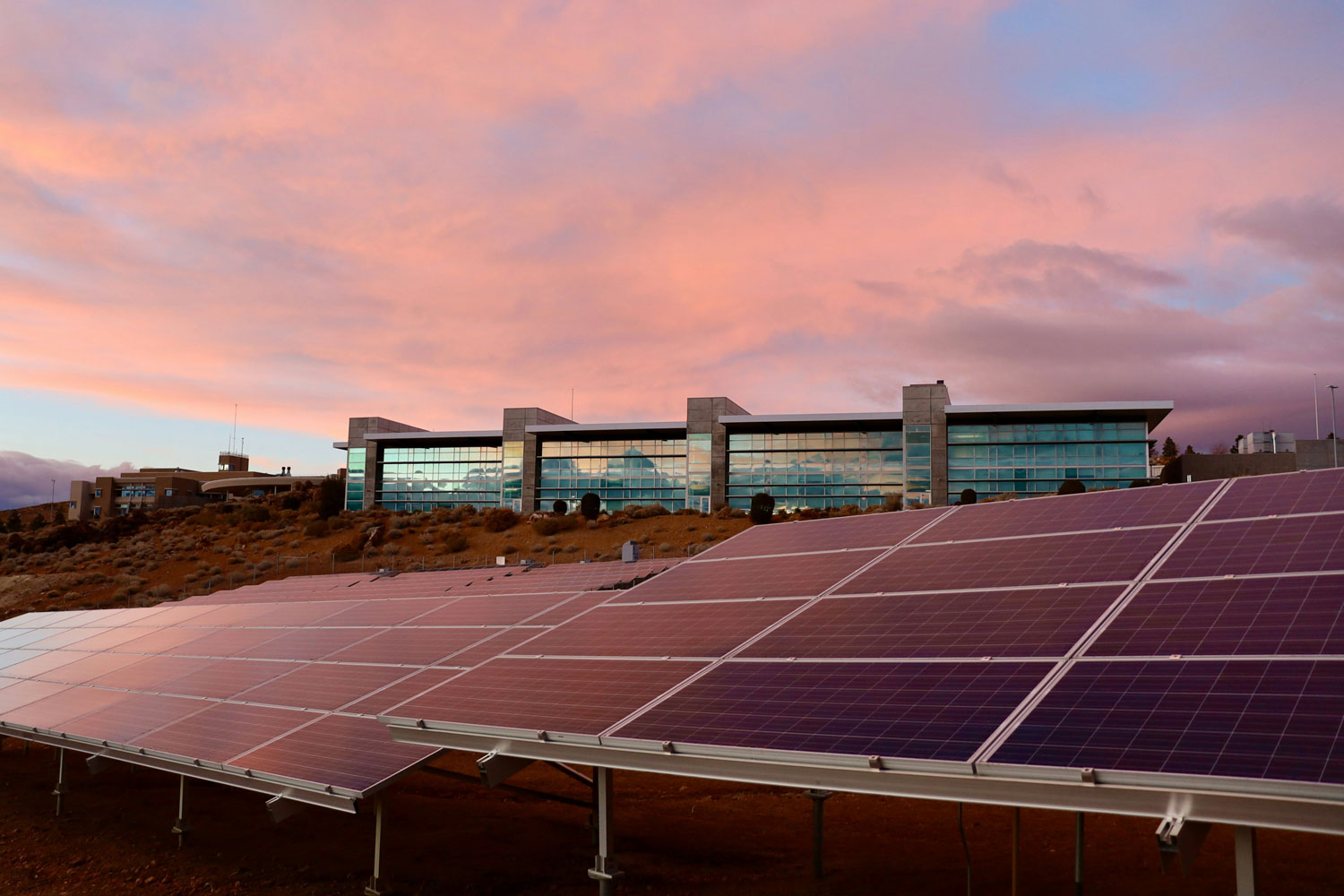Exclusive
 What Does Science and ESG Hold in Trump 2.0?
What Does Science and ESG Hold in Trump 2.0?
 Nature-Based Solutions: Balancing Promise and Limitations in Climate Action
Nature-Based Solutions: Balancing Promise and Limitations in Climate Action
 Crafting Eco-Friendly Strategies for Niche Enterprises
Crafting Eco-Friendly Strategies for Niche Enterprises
 U.S. Companies Roll Back ESG Commitments
U.S. Companies Roll Back ESG Commitments
 How New Rules Are Making Greenwashing a Thing of the Past
How New Rules Are Making Greenwashing a Thing of the Past
 Why Scope 3 is the Real Test of Corporate Climate Commitment
Why Scope 3 is the Real Test of Corporate Climate Commitment
 Water Sustainability in 2025 – Digitalization, AI, and the Rise of Smart Water Systems
Water Sustainability in 2025 – Digitalization, AI, and the Rise of Smart Water Systems
 From Pledges to Practice: Building Coherent and Reliable Climate Policy
From Pledges to Practice: Building Coherent and Reliable Climate Policy
.jpeg) The Role of Circular Economy in Waste Management
The Role of Circular Economy in Waste Management
 Small Steps, Big Wins: The Power of Everyday Sustainability
Small Steps, Big Wins: The Power of Everyday Sustainability
 Zero Waste at Home: Practical Tips for a Greener Lifestyle
Zero Waste at Home: Practical Tips for a Greener Lifestyle
 India’s Green Hydrogen Mission – Pioneering a Low-Carbon Future
India’s Green Hydrogen Mission – Pioneering a Low-Carbon Future
.jpg) Urban Resilience – How Nature-Based Solutions Are Transforming Cities
Urban Resilience – How Nature-Based Solutions Are Transforming Cities
 The ISO Net-Zero Standard – A Game Changer for Global Climate Action
The ISO Net-Zero Standard – A Game Changer for Global Climate Action
.jpg) Phasing Out Fossil Fuels— A Just Transition
Phasing Out Fossil Fuels— A Just Transition
 Life Cycle Assessment: The Key to Sustainable Decision-Making
Life Cycle Assessment: The Key to Sustainable Decision-Making
.jpg) Sustainable Menus— A Recipe for Environmental Responsibility
Sustainable Menus— A Recipe for Environmental Responsibility
.jpg) Green Hydrogen for a Sustainable Future
Green Hydrogen for a Sustainable Future
.jpg) Net Zero Made Simple— Everything You Need to Know
Net Zero Made Simple— Everything You Need to Know
 Regenerative Agriculture— Revitalizing Farms & Rebuilding Ecosystems
Regenerative Agriculture— Revitalizing Farms & Rebuilding Ecosystems
 Decarbonizing Transportation with Electric Vehicles and Beyond
Decarbonizing Transportation with Electric Vehicles and Beyond
 Reducing Consumption— Sustainable Practices at Home and Work
Reducing Consumption— Sustainable Practices at Home and Work
 Harnessing Power Through Sustainable Means
Harnessing Power Through Sustainable Means
 Decarbonization— The Path to a Low-Carbon Future
Decarbonization— The Path to a Low-Carbon Future
 The Path to a Sustainable World
The Path to a Sustainable World

Subscribers: 261
What Does Science and ESG Hold in Trump 2.0?

07 June 2025
935
As we approach 2025— the landscape of environmental, social, and governance (ESG) investing is undergoing significant transformation. With increasing scrutiny from stakeholders and a shifting political climate, companies are reevaluating their ESG commitments. The potential return of Donald Trump to the political forefront—often referred to as "Trump 2.0"—could further influence the direction of ESG policies and practices in the corporate world.
What to Expect in the Coming Years
In the wake of changing political dynamics, companies may face pressure to reassess their ESG strategies. Here are some key trends to watch for in 2025:
- Increased Regulatory Scrutiny: As governments worldwide implement stricter regulations on corporate sustainability practices, companies will need to adapt quickly. This may involve enhanced reporting requirements and transparency around ESG initiatives.
- Shift in Investor Priorities: Investors are becoming more discerning about the companies they support. While some may continue to prioritize ESG factors, others may push back against perceived "woke" capitalism, demanding a focus on financial performance over social responsibility.
- Focus on Authenticity: As backlash against greenwashing grows, companies will need to demonstrate genuine commitment to their ESG goals. Authenticity will be key in building trust with consumers and investors alike.
The Role of Technology in ESG
Technology will play a crucial role in shaping the future of ESG. Innovations in data analytics and artificial intelligence can help companies track their sustainability performance more effectively. By leveraging technology, businesses can gain insights into their environmental impact, identify areas for improvement and enhance their reporting capabilities.
Moreover—digital platforms can facilitate greater stakeholder engagement—allowing companies to communicate their ESG efforts transparently. This increased connectivity can foster collaboration among businesses, investors, and consumers, driving collective action toward sustainability.
Challenges Ahead
Despite the potential for positive change, challenges remain. The polarization of public opinion around ESG issues may lead to increased resistance from certain sectors. Companies must navigate this complex landscape carefully, balancing stakeholder expectations with their business objectives.
Additionally—the potential for political shifts, such as a return to Trump-era policies, could impact the regulatory environment for ESG. Companies may need to be agile in adapting to changing policies while maintaining their commitment to sustainability.
Embracing the Future of ESG
As we look ahead to 2025, the future of ESG is both promising and uncertain. Companies that embrace authenticity, leverage technology and remain adaptable will be better positioned to thrive in this evolving landscape.
By prioritizing genuine sustainability efforts—businesses can not only meet stakeholder expectations but also contribute to a more sustainable and equitable future. The journey toward responsible corporate practices is ongoing and the choices made today will shape the trajectory of ESG for years to come.
Read Next
 Blogs
Blogs
From Pledges to Practice: Building Coherent and Reliable Climate Policy
 News
News
Smart Cities in India: The Future of Urban Living
 Blogs
Blogs
Decarbonization— The Path to a Low-Carbon Future
 News
News
Sand Batteries and Smart Inverters – The Unsung Heroes of 2025’s Energy Transition
 Articles
Articles
Water Sustainability in 2025 – Tech, Policy & Crisis Management
.jpg) Articles
Articles
Circular economy solutions gaining traction in manufacturing and packaging
Live Polls

.jpg)
.jpg)
Leave your opinion / comment here